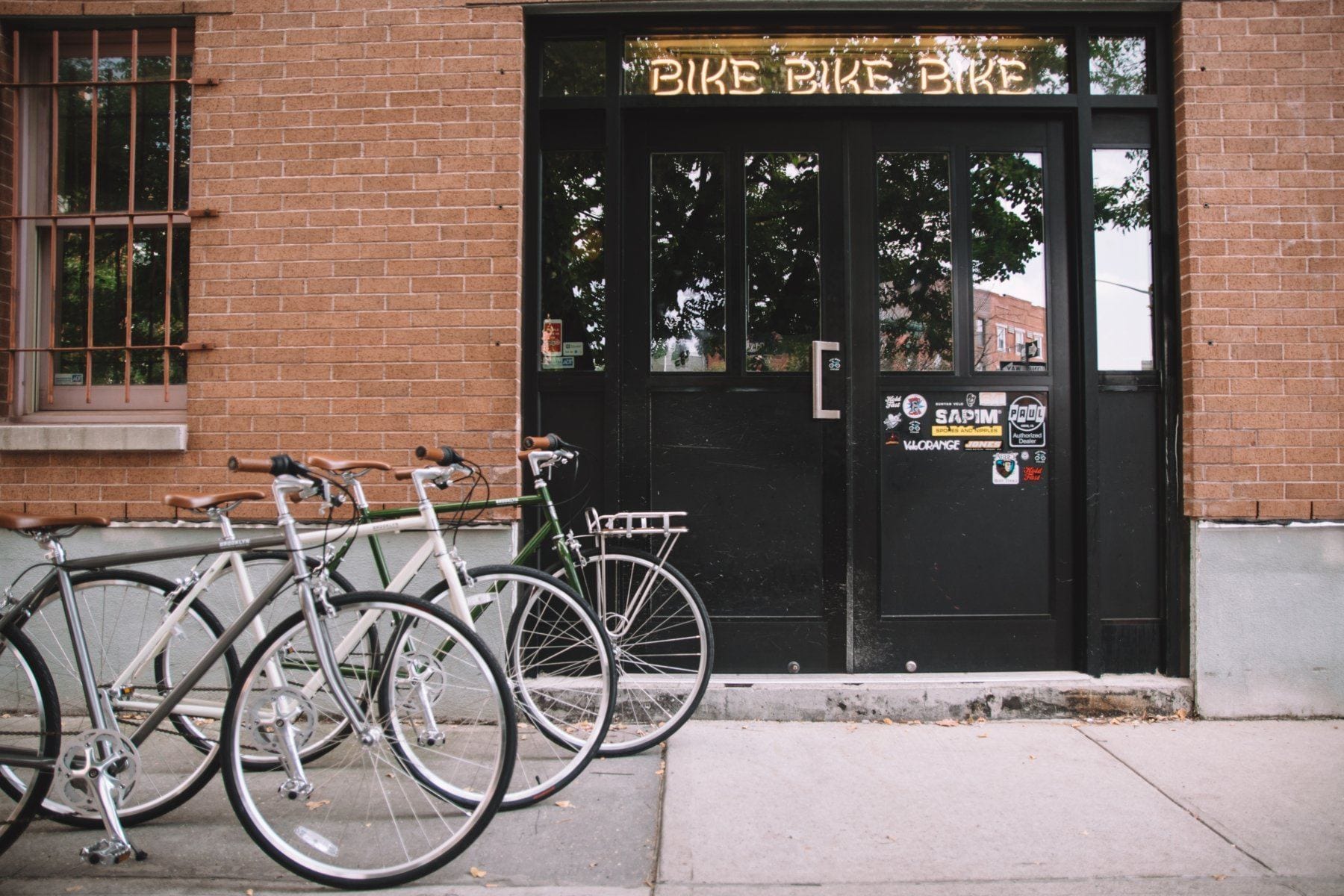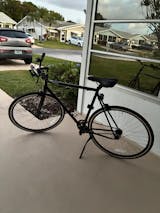9 Habits of the Best Shops By Michael Irwin for Brooklyn Bicycle Co.
We've been watching and writing about the trend in retail sales, and we've been wondering what it takes to thrive in today's retail environment. So we asked strategist and consultant, Michael Irwin what he thinks it takes:
Last year’s retail trade headlines were filled with stories of store closings and declining sales. If the end of traditional retail is here then there are a number of potential villains. Many would put Amazon high on that list and they’ve had a big impact but that’s not the entire story. Looking back, there are many examples where a seemingly unstoppable competitor did initial damage until smarter retailers took note and then took action. Starbucks boom to thousands of locations laid waste to traditional coffee shops. Yet years later, independent coffee houses are thriving because they’ve figured out a way to serve their markets.
Still, consumer buying habits have changed — spurred by online retailers like Amazon, Backcountry, and Chain Reaction, and consumer-direct models like Canyon Bicycle. Given that backdrop, is traditional retail and specialty shops, in particular, really doomed?
As founder of Bottle Rocket Advisors, co-founder and president of a cycling products company, and as global strategy officer, VP marketing, and CFO at WD-40, I visited more than 600 independent bike retailers around the world at all levels of success and struggle. Along the way, I also visited 20-30 Brooklyn Bicycle dealers. From that experience, I compiled a list of habits that fuel perennial standout performance by the best bike shops.
1. Own and adapt
Some owners fall into the ‘we’ve always done it this way’ trap rather than identifying changes in customers shopping habits and molding themselves to fit that profile. Rather than locking in, a better approach is to follow the adage that freedom is the acceptance of personal responsibility…and adapt as conditions change.
2. Know their market
The best dealers understand their market and customer base, engage in their community, and stay relevant. As a result, they are top of mind when consumers think about their category.
3. Define who they are and what they do … and then deliver
To pay bills, owners may try to be everything. There’s a risk of going wide, of trying to be like a mini-mass retailer serving a specialty category. Customers visit stores expecting expertise so retailers must offer that. Differentiating beyond product assortment matters too. Case in point: REI’s Opt Outside campaign, which has nothing to do with product or price.
4. Play to their strengths
There’s a reason why big retailers are covering online and offline. Physical locations deliver benefits that online can’t. Amazon delivers convenience and automates cross-selling but it can’t provide personal interaction. That’s where specialty shops can stand out. Personal relationships and connection can be powerful loyalty builders. And then there are customers who want their items now. That’s one thing that only brick-and-mortar shops can offer but they’ve got to have the inventory.
5. Professionalize – store, merchandising, staff, marketing
While the atmosphere may appear casual in many shops, the behind-the-scenes process shouldn’t be. The best retailers don’t leave anything to chance. If the goal is to deliver a consistently exceptional customer experience then the process needs to back it up through staff training, appearance, interaction and merchandising.
6. Create an environment that people want to visit … and then change it
From front to back, retailers should be thinking about what could entice a customer to come in, stay, buy, and come back. First impressions start at the front door. While consistency in layout allows customers to find what they’re looking for, it doesn’t always facilitate impulse purchases. Make the environment unique. Create display areas that surprise but don’t lock in, so you have the ability to change and give people reasons to return.
7. Develop their staff into experts in the category and customer experience
How many times have consumers walked into a shop looking for products and advice but walked out without receiving either one? You have to be the authority in the field. Staff need to know their stuff and be able to share it. Customers might come in for a product or a sale but they’ll keep buying if they like the staff. Product knowledge should be trained, monitored and tested.
8. Partner up
Independent retail shouldn’t — and can’t — be a solitary effort. Look for mutually rewarding relationships with suppliers, other businesses, and community groups serving their market. The most effective ones involve regular discussions about how both parties benefit from the collaboration.
9. Always learning
The sharpest merchants are always observing, assessing, and analyzing the customer experience, competition, consumer interactions, training, product assortment, what’s going well, and what’s not. And sometimes in places that aren’t so obvious. Consider other channels and industries.
Traditional retail may be doomed but only to the extent that dealers choose to dig in rather than evolve. The best retailers are consistent in one significant way: they’re never really done. They follow a cycle of diagnose, define, deliver, and do it again.
Shop City Bikes
View All
We build bikes for vivid lives—for taking adventures, reconnecting with old friends, discovering new neighborhoods and exploring hidden gems. Inspired by the streets of Brooklyn, our bikes are built for style, comfort, and durability. Made with top quality parts, crafted with care, and sold at an affordable price, your bike is yours for life. We scrutinize every component for maximum sustainability and performance, and every millimeter of the frame for ultimate comfort and style. We take pride in our process, in our products, and in the people who sell them.









